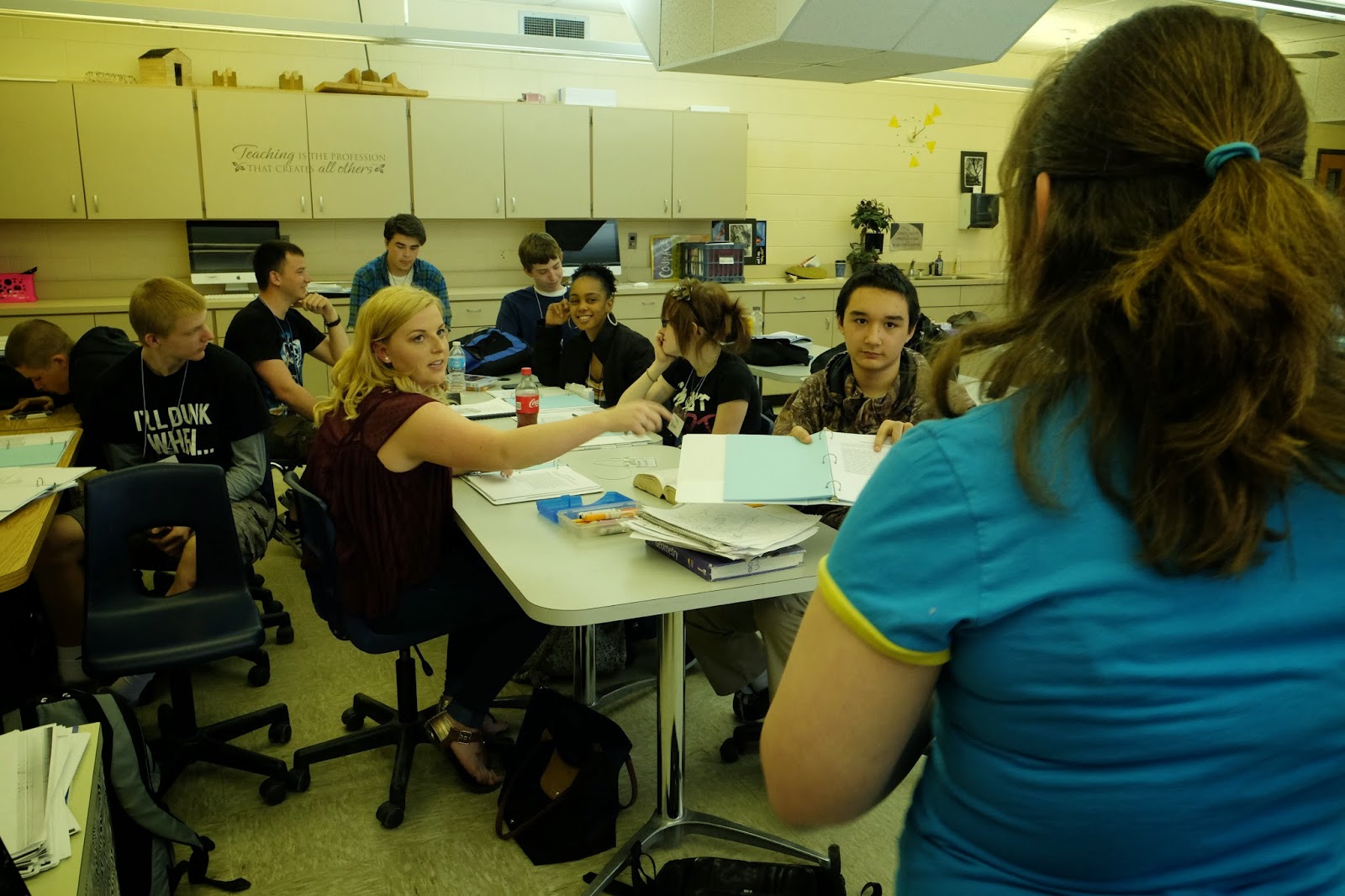We have our noses to the grindstone now. Two RU students gave lessons last week about creating content logs and transcribing. These are crucial steps in preserving oral history: we can shoot all the video we want, but if it's not cataloged, no one can find it, watch it, or further edit it.
RU student Kimberly P. explains how to format and complete content logs.
Content logs are a combination of a table of contents and an index. Key words are listed with each corresponding time-stamp so anyone can glance at it and find out what's contained in the footage (what it's about) and when it occurs (where to find it in the hours of footage shot).

RU student Madison H. [at left] quizzes FCHS students about correctly conducting transcription of audio files (overly perky expressions may be attributed to "Starburst" candy prizes).
Before any content log can be made, we must have content to analyze. With Mrs. Myers' preparation work, FCHS students are pros at pulling up audio files and typing word for word what comes through the headphones. During class, RU students answered questions and kept a sharp eye out for formatting errors.
Lauren B. (RU) helps Noah P. (FCHS) navigate the transcription process using instructions from the oral history project manual and student workbook.
FCHS students diligently transcribe each 5-6 minute section of audio while RU students patrol for formatting errors.
The major issue when transcribing is being able to decipher any dialect or garbled words; we learned to always ask someone to give a listen and help out. If it is a complete mystery you may have to insert one of these: _____ [missing data one word unclear].



No comments:
Post a Comment